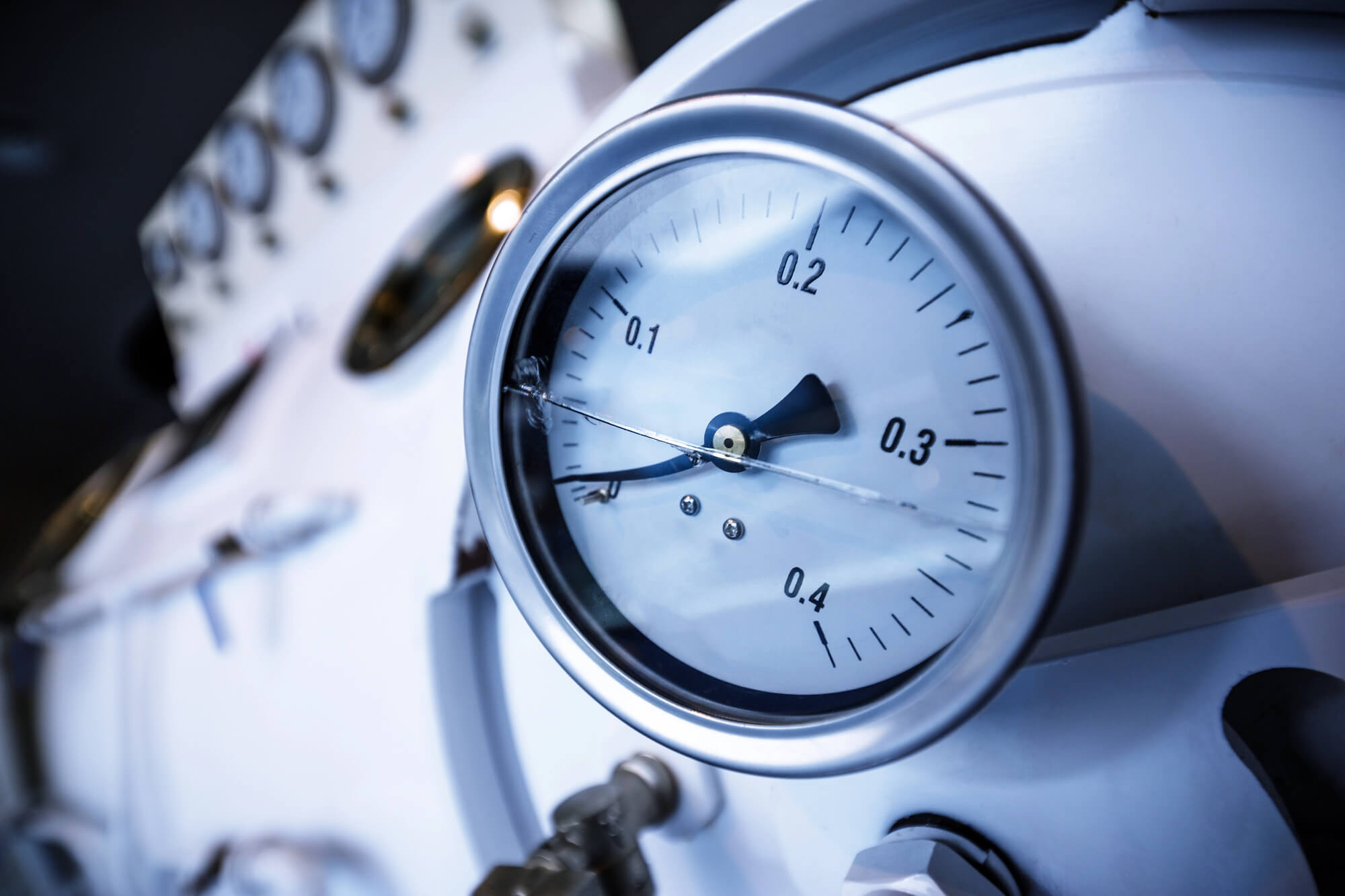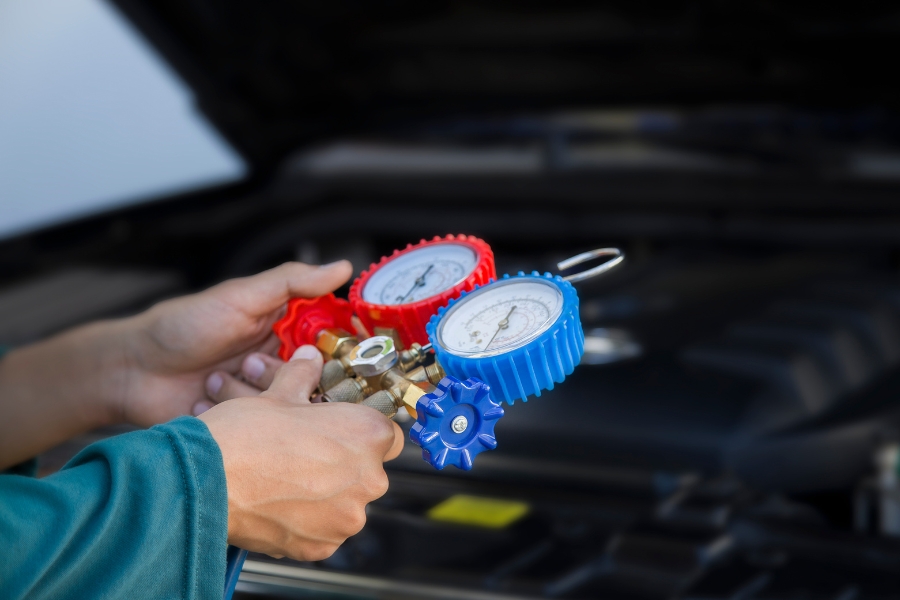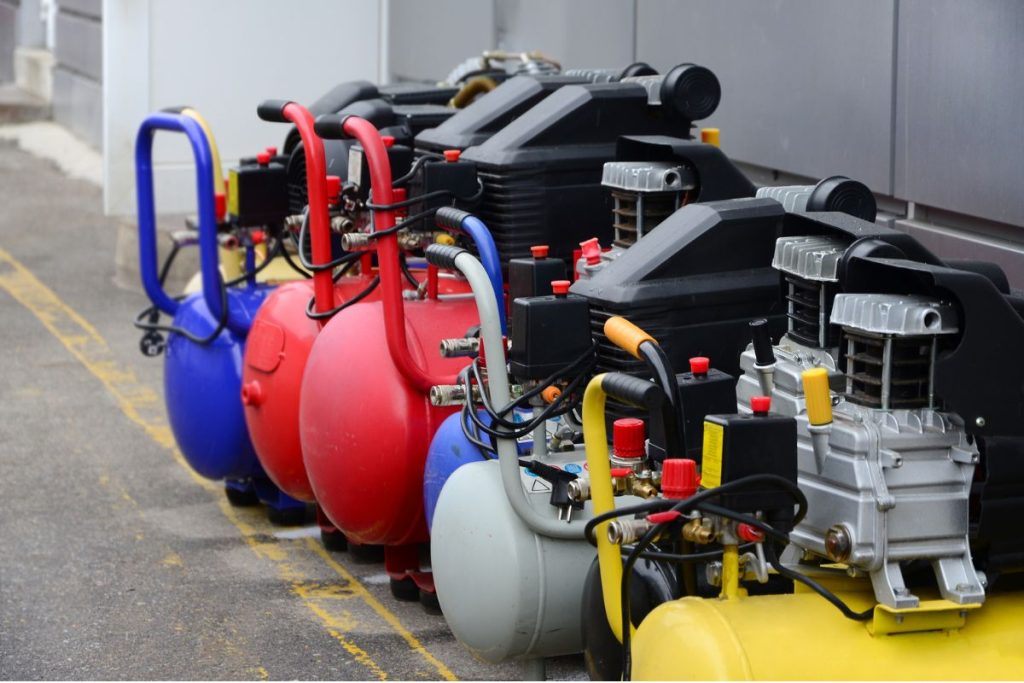Air compressors are essential in many industrial settings. They power a wide range of tools and machinery, making them vital for daily operations. When an air compressor breaks down, it can halt production and lead to significant downtime.
Unresolved industrial air compressor issues can increase operational costs and reduce efficiency. Understanding and addressing common air compressor problems is crucial for maintaining smooth and cost-effective operations.
Common Industrial Air Compressor Issues
1. Overheating
Overheating is a frequent problem that can cause severe damage to your air compressor if not addressed promptly.
Causes
- Blocked Filters: Dust and debris can clog compressor air filters, restricting airflow.
- Insufficient Ventilation: Poor ventilation can trap heat and cause the compressor to overheat.
- High Ambient Temperatures: Operating in hot environments without adequate cooling can lead to overheating.
Solutions
- Regular Maintenance of Filters: Clean or replace air filters regularly to ensure optimal airflow.
- Ensuring Proper Ventilation: Place your compressor in a well-ventilated area. Use fans or ventilation systems to dissipate heat effectively.
- Using Cooling Systems: Implement additional cooling systems, such as aftercoolers or water-cooled heat exchangers, to maintain a stable operating temperature.
2. Air Leaks
When troubleshooting air compressors, air leaks are often the culprit. They can significantly reduce the efficiency of your machine.
Causes
- Worn-Out Seals: Over time, seals can deteriorate.
- Loose Fittings: Vibration and regular use can cause fittings to become loose.
- Damaged Hoses: Hoses can crack or become damaged, especially in harsh environments.
Solutions
- Conducting Regular Inspections: Regularly check for leaks using soapy water or ultrasonic leak detectors.
- Replacing Faulty Components: Replace worn-out seals, tighten loose fittings, and replace damaged hoses to prevent leaks.
3. Excessive Noise
Excessive noise can indicate underlying problems with your air compressor.
Causes
- Loose or Worn Parts: Parts can become loose or wear out over time, causing noise.
- Misalignment: Components not properly aligned can create noise and reduce efficiency.
- Lack of Lubrication: Insufficient lubrication can cause friction and noise.
Solutions
- Tightening and Replacing Parts: Check and tighten parts. Replace any that show signs of wear.
- Ensuring Proper Alignment: Align components correctly to minimise the amount of noise.
- Regular Lubrication: Ensure all moving parts are adequately lubricated.
4. Pressure Drops
Pressure drops reduce system efficiency and increase operational costs. They cause your machine to use more energy to maintain the desired pressure levels.
Causes
- Blocked Intake Filters: Dust and debris can clog the intake filters, reducing airflow and causing a pressure drop.
- Leaks: Leaks in the system, including hoses and fittings, can cause significant pressure loss.
- Inadequate Compressor Size: Using a compressor that is too small for the application can result in insufficient pressure.
Solutions
- Cleaning or Replacing Filters: Clean or replace the intake filters to ensure optimal airflow and maintain pressure.
- Fixing Leaks: Conduct thorough inspections to identify and fix any leaks. Use soapy water to detect small leaks and ensure all connections are secure.
- Ensuring Adequate Compressor Size: Verify that the compressor is appropriately sized for your specific application.
5. Oil Contamination
Oil contamination can lead to serious problems in your air compressor, affecting both performance and longevity.
Causes
- Poor Maintenance: Infrequent oil changes and neglecting maintenance schedules can lead to oil contamination.
- Worn Seals: Seals can wear out over time, allowing contaminants to enter the oil system.
- Incorrect Oil Type: Using the wrong type of oil can cause contamination and reduce the compressor’s efficiency.
Solutions
- Routine Oil Changes: Follow a strict maintenance schedule for oil changes. Use high-quality oil to ensure the longevity and efficiency of the compressor.
- Checking and Replacing Seals: Inspect seals for wear and replace them as needed.
- Using the Correct Oil: Always use the oil type recommended by the manufacturer.
6. Moisture in the System
Moisture can cause various problems, including corrosion and reduced efficiency.
Causes
- Inadequate Moisture Control: Not using proper moisture control equipment can lead to excessive moisture in the system.
- High Humidity Levels: Operating in high-humidity environments without adequate moisture control can result in moisture buildup.
- Where a Receiver Tank is Fitted: A build-up of moisture may form in the receiver tank, depending on where or how it has been fitted when installed.
Solutions
- Using Dryers and Moisture Separators: Implement air dryers and moisture separators to remove excess moisture from the system.
- Maintaining the Moisture Control Equipment: Regularly inspect and maintain dryers and separators to ensure they are effective.
- Regularly Drain the Tank: Use the drain valve, or fit an Auto Drain Valve, to drain the tank regularly, ensuring all the water is removed from the Air Receiver Tank to avoid moisture build-ups.
7. Motor Issues
Motor issues can significantly impact the performance of your air compressor.
Causes
- Electrical Problems: Faulty wiring or electrical components can cause motor issues.
- Overheating: Poor ventilation or excessive workload can cause the motor to overheat.
- Worn Bearings: Bearings can wear out over time, leading to motor problems.
Solutions
- Regular Electrical Inspections: Conduct regular electrical inspections to identify and fix any wiring or component issues. Ensure all connections are secure and in good condition.
- Ensuring Proper Cooling: Make sure the motor is adequately cooled. Use fans or cooling systems to prevent overheating.
- Replacing Bearings: Regularly inspect bearings and replace them as needed to prevent wear and tear from causing motor issues.
8. Control System Failures
Control system failures can disrupt an air compressor’s entire operation. These failures often require immediate attention.
Causes
- Software Glitches: Outdated or buggy software can cause the control system to fail.
- Sensor Failures: Sensors can malfunction or give inaccurate readings, leading to control issues.
- Poor Calibration: Inaccurate calibration can lead to incorrect system operations.
Solutions
- Updating Software: Regularly update the software to the latest version to fix bugs and improve performance.
- Replacing Faulty Sensors: Identify and replace malfunctioning sensors.
- Regular Calibration Checks: Perform regular calibration checks to ensure all sensors and controls are operating correctly.
9. High Energy Consumption
High energy consumption is a common issue that can increase operational costs.
Causes
- Inefficient Operation: Running the compressor inefficiently can lead to higher energy use.
- Leaks: Air leaks force the compressor to work harder, increasing energy consumption.
- Outdated Equipment: Older compressors are often less energy-efficient compared to newer models.
Solutions
- Implementing Energy-Efficient Practices: Optimise compressor usage by running it only when necessary and using variable speed drives.
- Fixing Leaks: Inspect and repair leaks to prevent energy waste.
- Upgrading to Newer Models: Invest in modern, energy-efficient compressors to reduce energy consumption.
10. Frequent Cycling
Frequent cycling can lead to wear and tear, reducing the compressor’s lifespan.
Causes
- Incorrect System Setup: A system that’s not set up correctly can cause the compressor to cycle more frequently.
- Improper Pressure Settings: Incorrect pressure settings can lead to frequent cycling.
- Leaks: Air leaks can cause the compressor to turn on and off more often.
Solutions
- Proper System Setup: Ensure the system is set up correctly according to manufacturer guidelines.
- Adjusting Pressure Settings: Tweak the pressure to meet your needs to avoid unnecessary cycling.
- Repairing Leaks: Regularly check for and repair leaks to maintain consistent pressure and reduce cycling.
Preventive Maintenance Tips
Preventive maintenance is key to avoiding many common air compressor problems. A proactive approach can save time and money.
Checklist for Regular Maintenance
- Inspect and Clean Filters: Regularly check and clean or replace filters.
- Check for Leaks: Use soapy water or ultrasonic leak detectors to identify leaks.
- Inspect Belts and Hoses: Look for signs of wear and replace them as necessary.
- Lubricate Moving Parts: Ensure all moving parts are properly lubricated.
- Test Safety Systems: Regularly test safety valves and shutdown systems.
- Regularly Drain the Tank: Regularly drain your receiver tank with the drain valve or fit an Auto Drain Valve to ensure there is no water or moisture build-up from the Air Receiver Tank over time.
When to Call a Professional
Knowing when to call a professional can prevent minor issues from becoming major problems.
Here’s where a pro can help:
- Complex Electrical Issues: These involve electrical problems that go beyond basic troubleshooting.
- Major Component Failures: These refer to issues with critical components like the motor or control system.
- Recurring Problems: These are persistent issues that don’t resolve with basic maintenance.
Before choosing a service provider, make sure to:
- Check Credentials: Ensure the service provider is certified and experienced.
- Read Reviews: Look for reviews and testimonials from other industrial users.
- Get Quotes: Obtain quotes from multiple providers to compare services and prices.
Fix Common Air Compressor Problems Fast
Addressing common air compressor problems promptly is crucial for maintaining efficient and reliable operations. Implement the solutions and preventive measures discussed to keep your compressors running smoothly.
Regular air compressor maintenance and proper troubleshooting of air compressors can significantly reduce downtime and operational costs.
Subscribe for More Insights
Subscribe to the Express Australia blog for more tips on industrial equipment maintenance and stay updated with the latest industry insights.





